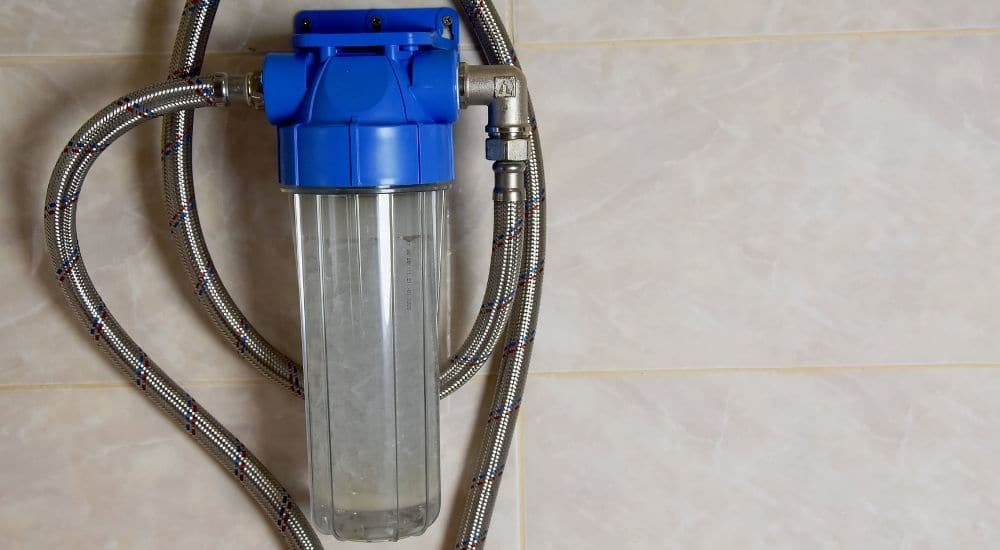
When it comes to ensuring your home has access to clean, soft water, a water softener system is a crucial investment. Hard water can cause a range of problems, from scale buildup in your pipes to soap scum on your shower walls. Fortunately, technology has advanced to offer a more efficient solution—residential hybrid water softeners. These innovative systems combine the best aspects of traditional water softeners with cutting-edge filtration technologies to provide better water quality, convenience, and long-term cost savings.
A residential hybrid water softener is designed to reduce the hardness of water, removing minerals like calcium and magnesium that cause scaling and negatively affect appliances and plumbing. By blending the traditional ion-exchange process with modern filtration techniques, these systems not only soften the water but also provide additional filtration benefits, such as removing chlorine and other contaminants. This dual-functionality is especially important for households that want clean, pure water without the inconvenience of multiple appliances.
How Does a Residential Hybrid Water Softener Work?
To understand why a residential hybrid water softener is the optimal choice for many homeowners, it’s important to know how these systems work. Typically, water softeners use an ion-exchange process, where calcium and magnesium ions are swapped with sodium or potassium ions. This reduces the hardness of the water, which can help prevent the damaging buildup of mineral deposits in pipes, faucets, and appliances.
Hybrid systems, however, go a step further. They often incorporate an additional filtration stage that uses activated carbon or other materials to remove common contaminants like chlorine, sediment, and organic matter. The result is not just soft water but cleaner water overall, improving the taste, smell, and quality of your household’s water.
Benefits of Residential Hybrid Water Softeners
- Dual Functionality: Softening and Filtration
The primary advantage of a residential hybrid water softener is the combination of softening and filtration in a single unit. While traditional water softeners only focus on removing hardness, a hybrid system provides the added benefit of filtering out impurities, including chlorine, which can affect the taste and odor of your water. This makes hybrid systems perfect for households that want comprehensive water treatment in a compact form.
- Improved Appliance Lifespan
Hard water can have a significant impact on the lifespan of your household appliances. When minerals accumulate inside appliances such as dishwashers, washing machines, and water heaters, it can lead to inefficiency and even breakdowns. By installing a hybrid water softener, you can significantly reduce scale buildup, extending the life of your appliances and saving you money on costly repairs or replacements.
- Better Skin and Hair Health
Hard water can also affect your skin and hair. The minerals in hard water can leave your skin feeling dry and irritated, and your hair may appear dull or limp. With soft water, your skin feels smoother, and your hair looks shinier and more manageable. The additional filtration in a hybrid system ensures that your water is free from harsh chemicals like chlorine, further enhancing your skin and hair health.
- Energy Savings
As hard water causes mineral buildup, your water heater may need to work harder to heat the water. This results in higher energy consumption and increased utility bills. By using a residential hybrid water softener, you can reduce the scale that forms inside your water heater, ensuring it operates more efficiently and uses less energy, saving you money in the long term.
- Environmentally Friendly
Using a hybrid water softener can help you reduce your environmental impact. These systems are designed to use less salt and water than traditional softeners, which means they are more eco-friendly. Additionally, the improved efficiency of appliances and water heaters reduces energy usage, further contributing to a lower carbon footprint.
Choosing the Right Residential Hybrid Water Softener for Your Home
When selecting a residential hybrid water softener, there are several factors to consider. The size of your home and the amount of water your family uses will determine the capacity you need. For larger households, a system with a higher capacity will be necessary to ensure consistent softening and filtration. You should also consider the type of filtration technology used in the system. Some systems use activated carbon, while others may use other advanced filtration methods such as reverse osmosis or UV light.
It’s also important to think about maintenance requirements. While hybrid water softeners are designed to be low-maintenance, they will need occasional upkeep, such as refilling the salt or cleaning the filter. Some models come with smart technology that can alert you when maintenance is needed, making it easier to stay on top of care for your system.
Conclusion
Investing in a residential hybrid water softener is one of the best ways to improve the quality of your home’s water. Not only do these systems soften your water, but they also provide additional filtration, ensuring you and your family enjoy cleaner, healthier water. Whether you’re looking to protect your appliances, improve your skin and hair, or save on energy costs, a hybrid water softener is a smart choice. By choosing a system that combines the benefits of softening and filtration, you’re making a long-term investment in the health and well-being of your home.





Leave a Reply